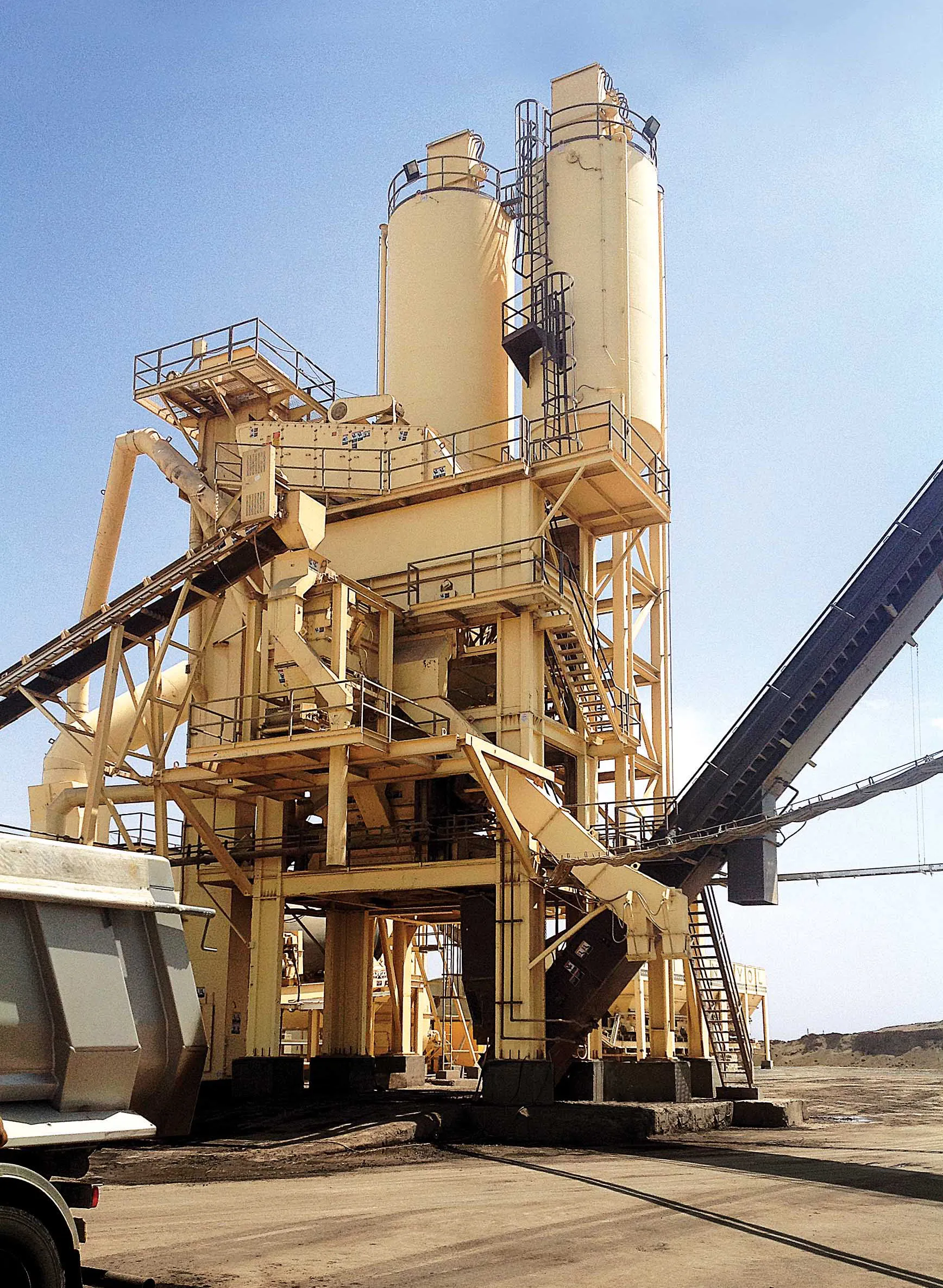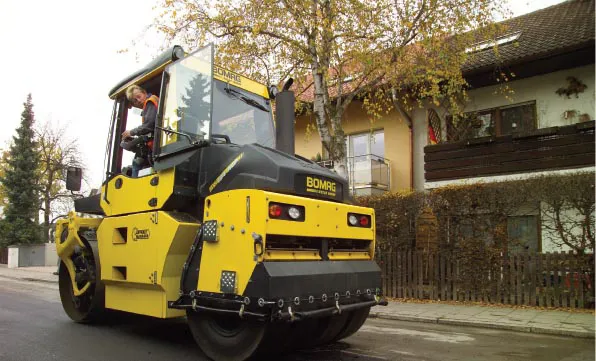In Azerbaijan an Astec batching plant is said to be giving a major contractor an advantage over its competition
The firm, Aztikintiyol, is one of the leading producers of aggregates and hot-mix asphalt in Azerbaijan and decided to expand its operations into the southern regions of the country. The need for asphalt in this area was growing as there is massive infrastructure development close to the border with neighbouring Iran taking place.
However a simple plant was not suitable as the firm required
June 9, 2015
Read time: 4 mins

In Azerbaijan an Astec batching plant is said to be giving a major contractor an advantage over its competition
The firm, Aztikintiyol, is one of the leading producers of aggregates and hot-mix asphalt in Azerbaijan and decided to expand its operations into the southern regions of the country. The need for asphalt in this area was growing as there is massive infrastructure development close to the border with neighbouring Iran taking place.
However a simple plant was not suitable as the firm required versatile equipment capable of delivering multiple mix recipes. The client was also looking for reliable, high quality equipment capable of delivering high capacity, while using sophisticated hot-mix asphalt (HMA) technology.
According to the firm’s plant and maintenance superviser Mike Schafer, the1250 Astec TS-5 Batch plant fitted the bill as it is capable of manufacturing up to 375tonnes of HMA/hour. The supply deal was competitive too as other highly regarded suppliers have a strong presence in the area.
But the firm opted for the Astec equipment as it was keen to buy a high quality plant featuring up-to-date technology and that would also deliver the reliability and versatility of product required, and at a competitive price. Having bought the first plant, the firm installed this in the small town of Bilasuvar, strategically located between Azerbaijan’s capital Baku and the Iranian border.
Aztikintiyol said that the purchase of the Astec batch plant has allowed it to deliver a continuous supply of HMA with consistent quality levels. And the plant also has the ability to produce many different types of mix for customers in the surrounding regions. The firm said that the plant has proved to be easy to operate and an important option is a control system in the local language, as well as the user-friendly interface.
Despite the size of the plant and its stationary nature, site preparation and set up took only 48 days to complete and start producing HMA. The fast set up was helped by support in the field from Astec service technicians and training of personnel on maintenance procedures and operation of the plant. The Astec plant will provide many decades of service to this region because of its reliability, strength of design, and the continuous support from Astec.
Three more Astec batch plants were installed and began production for the 2014 paving season. The company also has more plans in place to purchase and install more of the plants. This is because the Astec equipment has been proven in the application for HMA production.
With the new plant in place, Aztikintiyol has further established its position in the local market. Low production cost due to having its own sources of aggregates supply and low maintenance costs, combined with Astec’s patented technologies allow it to replace up to 30% of the aggregates and bitumen in most of the mix designs.
Using reclaimed asphalt pavement (RAP) has allowed the company to gain a substantial advantage as compared to the competition. At the same time, high capacity and reliability has allowed the company to meet high demands from the paving contractors.
During the first four months of production, the plant was able to produce more than 200,000tonnes of HMA, and had asphalt orders for the 2014 season of more than 400,000tonnes of asphalt. This was used to supply various contractors working in the region, both for federal and smaller-size jobs.
The goal for the company is to produce more than 1.2 million tonnes of asphalt in a paving season, according to Babek Salmanov, project leader at two portable asphalt plants located in the fast growing areas of Gabala and Savalan.
The firm, Aztikintiyol, is one of the leading producers of aggregates and hot-mix asphalt in Azerbaijan and decided to expand its operations into the southern regions of the country. The need for asphalt in this area was growing as there is massive infrastructure development close to the border with neighbouring Iran taking place.
However a simple plant was not suitable as the firm required versatile equipment capable of delivering multiple mix recipes. The client was also looking for reliable, high quality equipment capable of delivering high capacity, while using sophisticated hot-mix asphalt (HMA) technology.
According to the firm’s plant and maintenance superviser Mike Schafer, the
But the firm opted for the Astec equipment as it was keen to buy a high quality plant featuring up-to-date technology and that would also deliver the reliability and versatility of product required, and at a competitive price. Having bought the first plant, the firm installed this in the small town of Bilasuvar, strategically located between Azerbaijan’s capital Baku and the Iranian border.
Aztikintiyol said that the purchase of the Astec batch plant has allowed it to deliver a continuous supply of HMA with consistent quality levels. And the plant also has the ability to produce many different types of mix for customers in the surrounding regions. The firm said that the plant has proved to be easy to operate and an important option is a control system in the local language, as well as the user-friendly interface.
Despite the size of the plant and its stationary nature, site preparation and set up took only 48 days to complete and start producing HMA. The fast set up was helped by support in the field from Astec service technicians and training of personnel on maintenance procedures and operation of the plant. The Astec plant will provide many decades of service to this region because of its reliability, strength of design, and the continuous support from Astec.
Three more Astec batch plants were installed and began production for the 2014 paving season. The company also has more plans in place to purchase and install more of the plants. This is because the Astec equipment has been proven in the application for HMA production.
With the new plant in place, Aztikintiyol has further established its position in the local market. Low production cost due to having its own sources of aggregates supply and low maintenance costs, combined with Astec’s patented technologies allow it to replace up to 30% of the aggregates and bitumen in most of the mix designs.
Using reclaimed asphalt pavement (RAP) has allowed the company to gain a substantial advantage as compared to the competition. At the same time, high capacity and reliability has allowed the company to meet high demands from the paving contractors.
During the first four months of production, the plant was able to produce more than 200,000tonnes of HMA, and had asphalt orders for the 2014 season of more than 400,000tonnes of asphalt. This was used to supply various contractors working in the region, both for federal and smaller-size jobs.
The goal for the company is to produce more than 1.2 million tonnes of asphalt in a paving season, according to Babek Salmanov, project leader at two portable asphalt plants located in the fast growing areas of Gabala and Savalan.







